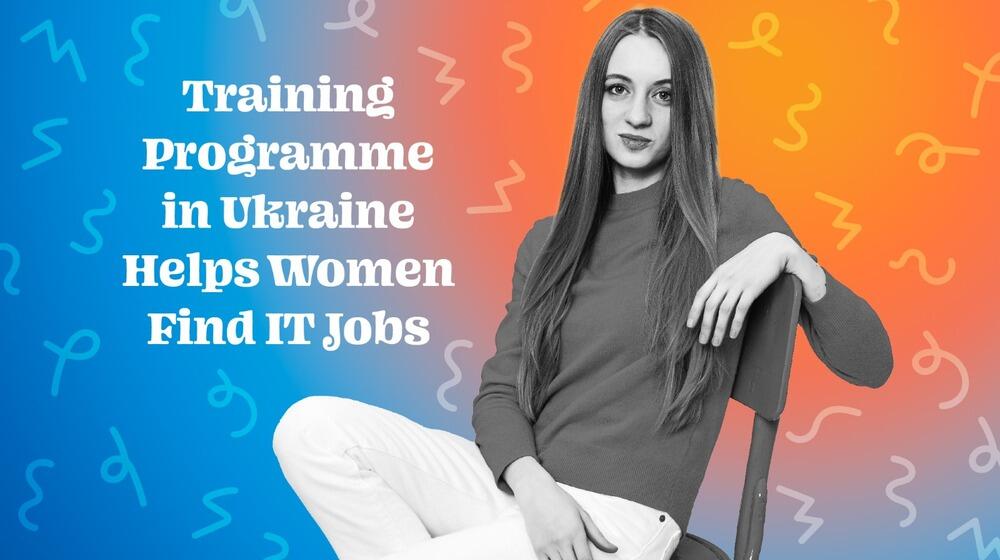“When the war started, a missile destroyed our house,” said Nina Cherlenuk, 25, from Irpin. “So, together with my daughter, I fled.”
Nina left behind a career as a radiologist to settle in a small village in the western part of Ukraine.
“I was thinking about leaving the country, but I realized that I would need at least one year to get my medical diploma recognized and learn a new language,” she said. “After the first shock was gone, I understood that I needed to do something and started to seek new opportunities. That was when I found out about Будь/Be.”
Nina is one of 500 participants of the Будь/Be course, designed by the “EU 4 Gender Equality: Together against gender stereotypes and gender-based violence” programme to help Ukrainian women get jobs in the IT and creative industries. The programme is implemented by UN Women, UNFPA and Inscience, a Ukrainian NGO, which promotes science and increases its value for society, business, and institutions.
“Shortly before the war, I gave birth to my daughter and took maternity leave,” said Nina. “I wasn’t expecting that I would never go back to my workplace because of the war. This platform was exactly what I needed in this situation.”
One-third of Ukrainians have been forced from their homes since the start of the Russian aggression. Almost 8 million refugees, mainly women and children have fled to countries across Europe and nearly 7 million people have been displaced internally within Ukraine. A new city or country often means career changes – a new workplace, a new company or an entirely new profession. In response to this disruption, the “EU 4 Gender Equality: Together against gender stereotypes and gender-based violence” programme together with Inscience created the Будь/BE course. The course was launched at the beginning of June 2022 and is designed for women who lost their jobs and want to learn a new profession, women who have fled abroad and are looking for work and those who temporarily moved to another Ukrainian city.
On the course, mentors from both Ukrainian and international companies support women in their search for jobs in tech, design, programming, software development and testing. They help participants set goals and guide them towards achieving them.
“I didn’t know anyone in IT before and I was lost in information,” said Nina. “But, together with my mentor, we created my career plan, edited my CV and cover letter and she also gave me advice about job interviews.”
Soon after she completed the course, Nina found a remote job as a data researcher in an IT company.
“There was a moment when I lost all hope and confidence,” said Nina. “But my mentor believed in me more than I believed in myself, and just one week later, I received my job offer.”
This publication was produced with the financial support of the European Union. Its contents are the sole responsibility of UN Women and UNFPA and do not necessarily reflect the views of the European Union.




